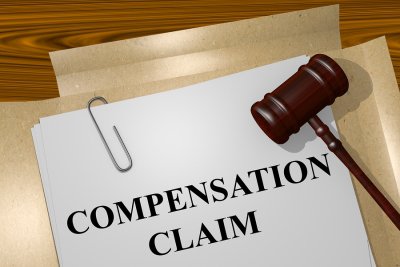-
Basic Qualifications for Social Security Disability
If you are physically or mentally disabled, you may be able to qualify for Social Security benefits . Consider speaking to an attorney in Baltimore about your eligibility. Your attorney will need to know about your medical conditions and employment history. You may still qualify for benefits if you are currently working as long as your monthly income does not exceed a certain threshold.
As you’ll learn by watching this video, other criteria for Social Security benefits include having a disabling condition that is expected to either end in death or last for at least 12 consecutive months. You must be unable to perform work that you previously did and be unable to adjust to other types of work.
-
A Quick Look at Vocational Rehab
When you consult a workers’ compensation lawyer in Baltimore, you may hear the term “vocational rehabilitation.” Vocational rehab may be available as part of your workers’ comp benefits. Its purpose is to provide you with the services you need to re-enter the workforce. If you aren’t sure whether you qualify for vocational rehab or if you have a disagreement about the services being provided, your workers’ compensation attorney can assist you.

Candidates
Vocational rehab is available to injured employees who are unable to return to their previous work because of a qualifying workplace injury. Even when a person can no longer perform his or her previous work, he or she may be re-trained to fulfill another position. If you cannot return to work in any capacity, you may be a candidate for Social Security disability benefits instead of vocational rehab services. Before receiving vocational rehab services, the workers’ comp insurance carrier must agree that you are qualified to receive them. If your workers’ comp refuses vocational rehab services, talk to your lawyer. He or she may request a hearing to appeal this decision.
Services
The services you can receive are dependent upon your specific needs. Generally, vocational rehabilitation can include aptitude or skills testing, vocational counseling, job training, and job placement services. You might also receive on-the-job training when you begin your new job.
Practitioners
In Maryland, injured workers can turn to either a public or private rehabilitation counselor. Public counselors work through the Maryland Division of Rehabilitation Services (DORS). When you’re assigned a rehabilitation counselor, you must advise him or her of your workers’ comp claim.
Steps
Your vocational rehabilitation will begin with an in-depth interview with your assigned counselor. You can expect to answer plenty of questions about your background, including your education, certifications, professional licenses, and other credentials. You’ll also answer questions about your employment history, and any of your personal interests or hobbies that may influence the course of your future career. The counselor will consider your physical limitations or other aspects of your disability. Based on this information, your counselor will develop a personalized rehabilitation plan that includes actionable, specific goals. If you do not agree that the plan and its goals are appropriate for you, the plan will be submitted to a commissioner.
-
Mistakes to Avoid After a Car Crash
A car accident can be quite stressful, whether it’s a minor fender bender or a major wreck. The stressful nature of these situations increases the likelihood that drivers will make critical errors that may compromise their ability to obtain just compensation. To minimize this risk, it’s important that every driver understand exactly which steps to take and which mistakes to avoid because a car accident in Baltimore can occur at any time.

Apologizing to the Other Driver
In the U.S., society tends to view apologies with high regard. It seems natural to apologize in many situations and this isn’t always seen as being an admission of fault. However, in the wake of a car accident, simply saying “I’m sorry,” or “I didn’t see you over there,” may compromise your claim. The other driver and the insurance company may try to claim that this statement is an admission of fault on your part and therefore, your rightful compensation may be denied or reduced. If the other driver displays anger or demands an apology, all you need to say is something similar to “Here’s my accident lawyer’s card. Please direct all of your questions to him or her.”
Making a “Gentleman’s Agreement”
If the car accident is minor and the damage is minimal, the other driver may ask you to make a verbal agreement with him or her to handle the situation without getting the police or insurance carriers involved. Making a gentleman’s agreement is never a good idea and it usually indicates that the other driver doesn’t have insurance. Always file a police report after a crash and notify the insurance company.
Neglecting to Document the Scene Properly
Most people know that they are supposed to exchange insurance information after a car accident. But many fail to take the additional step of documenting the scene. This evidence can be critical in substantiating your claim. Documenting an accident scene is straightforward. Take photos of all involved vehicles, the injuries, skid marks on the road, traffic signs and lights, and other significant features of the area. Ask eyewitnesses to provide their full names and contact information. If they have time, these witnesses may be willing to provide a written, signed statement before leaving the scene. Give your accident lawyer a copy of all of this evidence, as well as the police report.
-
A Plaintiff’s Guide to Scar Revision
The effects from car accident injuries can linger for months. Sometimes, they may even be permanent. If you were in a car accident and now have disfiguring scars, it’s well worth your time to speak with an accident lawyer in Baltimore about your legal right to seek compensation. Because of the permanent nature of your disfigurement, higher compensation is possible. In addition to pain and suffering damages, you may seek compensation to cover the cost of scar revision surgery.

Deciding to Have Scar Revision Surgery
Unfortunately, not all severe scars can be improved through surgery and no scar can be completely “erased.” Disfiguring scars such as keloid, hypertrophic, and contracture scars are the most common types to be treated surgically. It’s best to speak with a surgeon about the possibility of scar revision while your claim is still pending or even before your accident lawyer files it. If it isn’t possible to improve the disfigurement, you might seek greater compensation for the loss of earning capacity and other long-term problems. If scar revision is right for you, the medical provider will determine which type of procedure would be most effective. For instance, Z-plasty and other tissue rearrangement techniques may be used for contracture scars. This approach can reduce the pressure that these scars exert. Tissue expansion and skin grafts are other possibilities.
Preparing for the Surgery
Like all medical treatments, scar revision is not without potential risks. It’s important that you fully understand the potential risks and discuss your concerns with the surgeon. Your specific preparation instructions will depend on the type of procedure and your overall health. You may be asked to stop taking certain medicines or supplements and, if you smoke, you will need to quit. You should also have a recovery plan in place before you have the procedure.
Recovering from the Procedure
Every patient’s recovery is different and you should always follow the instructions provided by your care team. In general, patients can expect to rest at home while they recover. Someone may need to assist you for a few days. Avoid consuming alcohol and only resume driving, exercising, and similar activities once your doctor clears you to do so.
““
-
What Is the Trial Work Period for Military Veterans?
If you are a disabled servicemember or military veteran, you might not realize that you could be entitled to receive disability benefits through Social Security as well as your benefits from the VA. A lawyer in Baltimore can guide you through the process of obtaining benefits. An attorney can also help you navigate the trial work period (TWP). During a TWP, you will continue to receive your full Social Security disability benefits even if you are working. The TWP was designed to allow disabled veterans to evaluate their ability to work without the risk of losing their benefits.
The TWP lasts for nine months within a 60-month time period. These trial work months do not need to be consecutive. A trial work month can be any month in which your earnings exceed a certain threshold. You are considered to be in the TWP for as long as you have a continued disability, as long as you report your work activity.

-
Identifying Common Office Hazards
Workers’ comp law in Baltimore is a no-fault system. This means that an employee may be covered under workers’ compensation even if he or she made a mistake that led to the injury. However, it’s still important to take precautions in the workplace to protect yourself and reduce the possibility of having to file a workers’ compensation lawsuit.
When you watch this video, you’ll learn about some of the most common office hazards and how to eliminate them. This video identifies tripping hazards like cables, loose flooring, and recycling bins or other items placed in walkways. You’ll also get some tips on preventing falls from elevated positions. Unfortunately, not all accidents are preventable. If you do become injured, consider speaking with a workers’ compensation lawyer right away.
-
Can I Receive Both Military Pay and Social Security Disability?
Wounded warriors may qualify for many different types of benefits, but it’s often difficult to navigate the red tape required to receive them. If you are an active duty or retired military servicemember, it’s in your best interests to consult an attorney in Baltimore, especially if you also qualify for Social Security disability benefits . Many servicemembers are unaware, for instance, that it is indeed possible to receive both military pay and Social Security disability payments.
You may have heard that receiving income other than disability benefits can disqualify you from receiving disability payments. But in fact, the determining factor for military servicemembers is the extent of the work activity, rather than the amount of military pay. This means that even if you’re on limited duty or if you’re working in a therapy program, it’s worth your time to apply for Social Security disability benefits with the help of an experienced attorney.

-
Coping with Limb Loss
Traumatic limb loss affects countless individuals. It can be difficult to move forward after a car accident or other incident that costs you a limb. During such a difficult time, you need a strong network of support. Ideally, your support network should include an accident lawyer in Baltimore who has prior experience handling cases that involve catastrophic injuries. Your accident attorney can help you seek the compensation you’ll need for your medical care and future expenses.

Making Financial Arrangements
When limb loss occurs as a result of a car accident or other sudden incident, there is no time to prepare for it. And immediately after waking up in the hospital, you’ll have many other issues on your mind than paying the medical bills. Ask a relative to find an experienced accident attorney who can get started reviewing your case. Later on, you can take a more active role in the accident lawsuit. Compensation from a settlement or jury verdict can allow you to meet your care needs despite your reduced capacity to work.
Seeking Mental Health Counseling
It is quite a shock to wake up in the hospital and discover that a limb is missing. For this reason, it’s customary for mental health professionals to meet with amputees as quickly as possible. Even if you never considered speaking with a psychologist before the accident, you are strongly encouraged to take advantage of mental health resources while you adjust to your new realities.
Coping with Physical Limitations
You may be in the hospital for quite a while after the amputation. Before you are discharged, you can expect to meet with a physical therapist and perhaps an occupational therapist. Your therapists will develop a rehabilitation program for you, which will include teaching you how to overcome your new physical limitations . Your occupational therapist will help you relearn important self-care skills such as dressing yourself and climbing stairs.
Defining a New Self-Identity
As you progress with your recovery, you may need to redefine your purpose in life. You may no longer be able to work and you may need others to provide care for you, especially if you’ve lost multiple limbs. But this certainly doesn’t mean that your life no longer has a purpose. Your life has taken an unexpected turn, but you can find new meaning and purpose that allows you to move forward.
-
The Recovery Process for Brain Injuries
A car accident in the Baltimore area can leave survivors with serious injuries such as traumatic brain injuries (TBIs), also known as concussions. If you sustained a concussion in a car accident, the most important step to take is to get plenty of physical and cognitive rest. There is no way to speed up the recovery process for this particular type of car accident injury . Healing takes time, especially for moderate to severe concussions, and trying to rush your recovery will only worsen your health.
Watch this video and consult your physician for more tips on recovering from this serious car accident injury. This expert explains that it’s important to refrain from stimulating activities, which include reading, texting, watching TV, and doing any other activities that involve screen time. She also explains what patients should do in the event they do return to activity too quickly.
-
Common Questions About Workers’ Comp in Maryland
Workers’ compensation law in Baltimore and throughout Maryland requires most employers to provide coverage for their employees in the event of a workplace accident that results in injury. If you’re an employee, it’s important to understand your legal rights regarding workers’ comp . You can consult an attorney if there are any uncertainties about your right to receive benefits or about the process of filing a claim.

How should I report an accident?
In the aftermath of a serious accident, your first priorities should be your safety and health. However, it’s also crucial to report the accident right away. This is different from filing a workers’ compensation claim. If your company has established guidelines for reporting a workplace accident, you should follow them. Otherwise, contact your human resources representative or supervisor to report the incident. Be sure to get a copy of the written accident report.
Will workers’ comp cover all of my losses?
If you are eligible for workers’ comp, all of your related medical bills will be paid. This includes expenses for diagnostics, treatment, pharmaceuticals, and rehabilitation. You will also receive a portion of your lost wages following an unpaid three-day waiting period. However, if your doctor states that you are still not able to return to work after 14 days, your workers’ comp payments will retroactively include pay for those first three days.
The workplace accident was my fault. Am I disqualified from receiving benefits?
Not necessarily; workers’ compensation is a no-fault insurance system. Even if you made a mistake that led to the accident and your injuries, you can still receive benefits for your lost wages and medical expenses. However, intentionally self-inflicted injuries are not typically covered. Some claims may also be rejected on the basis of drug or alcohol use.
What happens if my claim is contested?
An employer or the workers’ comp insurance carrier may contest the claim. If this happens, the party will inform the Maryland Workers’ Compensation Commission of these objections in writing. The party will also likely inform you or your attorney directly. When a claim is contested, the Commission schedules a hearing.
RECENT POSTS
categories
- Uncategorized
- Worker's Compensation
- Attorney Fees
- Auto Accident Injury Whiplash
- Attorney Review
- Personal Injury
- Social Security Disability
- DUI
- Workplace Injuries
- Auto Accident
- Workers Compensation Claims
- Permanent Disability
- Infographic
- Drunk Driving
- Wrongful Death
- Works in Maryland
- Uninsured Motorists
- Motorcycle Crashes
